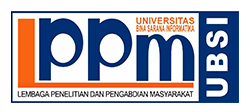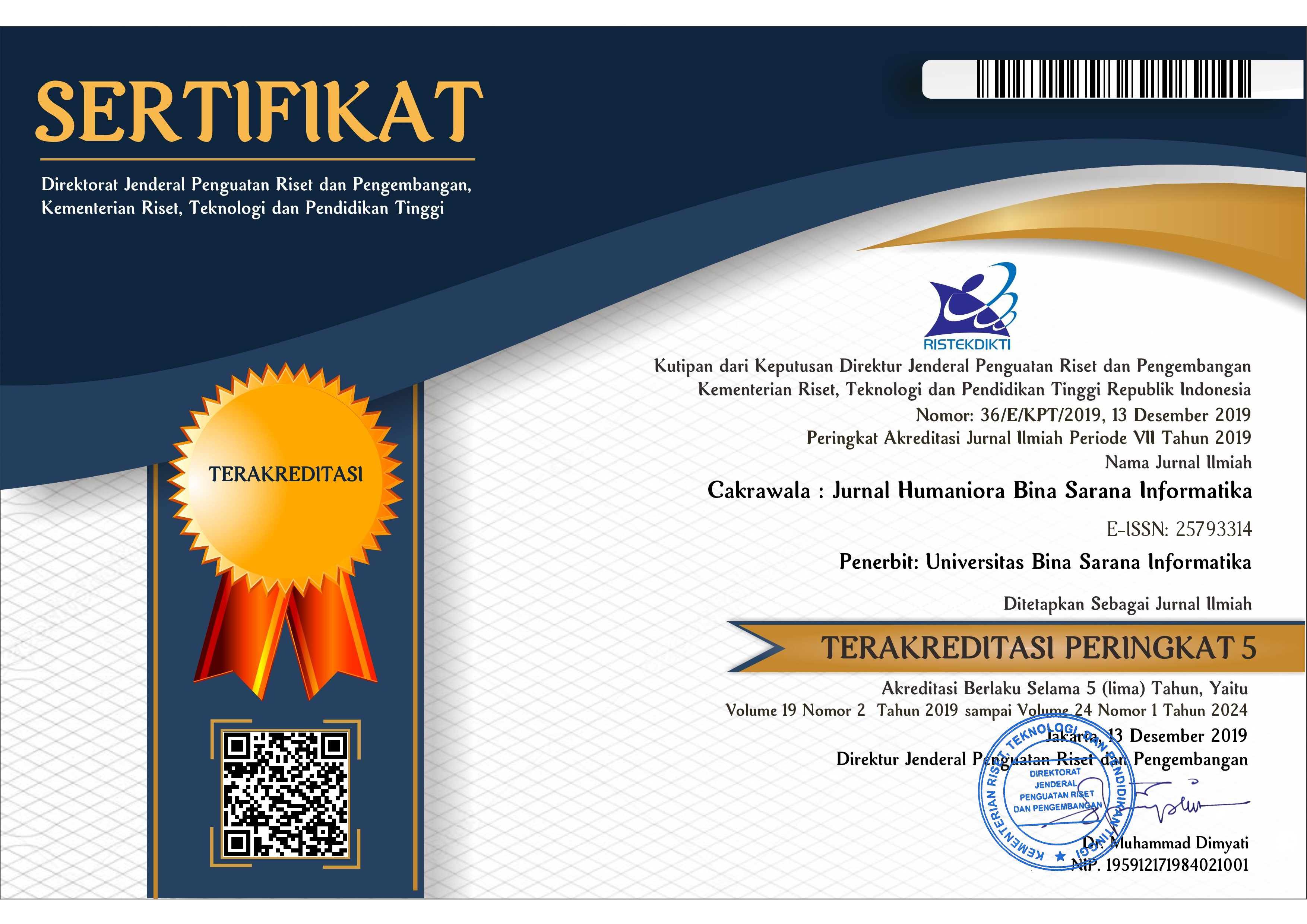Infodemik Covid-19 dalam Perspektif Jean Baudillard (Studi Kasus Berita Hoaks Covid-19 di Website covid19.go.id)
Abstract
Abstract - The development of Information Technology which has impacts on the ease of producing and accessing information has caused the rapid circulation of information in the community. However, the circulation of this information does not completely contain the truth. Hoax information is intentionally produced and spread to the public through various application platforms aimed to distorting the facts so that the information is believed to be the real truth. This condition can be seen from the ease people share the information they receive through their smart devices to a number of people closest to them or to groups or community wherr they participate in.
This research is a descriptive qualitative research. The data in this study was carried out by analyzing hoax news mapping data collected by the covid-19 handling task force through the covid19.go.id website obtained through the Indonesian Anti-Defamation Society (Mafindo). The news data and hoax information in the form of verbal and visual were analyzed with a qualitative content analysis approach to analyze how the hoax phenomenon during this pandemic was deliberately created and spread by the public.Furthermore, the results of the analysis are examined with the perspective of Jean Baudillard's simulacra and hyperreality.
The result shows that information as the main product of the information society is no longer dominated by information producers such as television and newspapers, but now anyone who has a device and is connected to the internet can produce information. The impact of this is that humans are trapped in false reality and dwell on duplication and superficiality.
Keyword: information technology, hoax covid-19, simulacrum jean baudillard
Full Text:
PDFReferences
Bungin, M. Burhan. (2007). Penelitian Kualitatif: Komunikasi, Ekonomi, Kebijakan Publik, dan Ilmu Sosial Lainnya. Jakarta:Kencana Prenada Media.
Edkins, Jenny, et.al. (2010). Teori-teori Kritis: Menantang Pandangan Utama Studi Politik Internasional. Yogyakarta: Baca!,
Kadir, Abdul. (2002). Pengenalan Sistem Informasi. Yogyakarta :Andi.
Kaufmann, Vincent. (2006). The Lessons of Guy Debord, October Magazine, Ltd and Massachusetts Institute of Technology, United States of America.
Kriyantono, Rachmat. (2012).Teknik Praktis Riset Komunikasi. Jakarta:Kencana.
Lubis, Akhyar Yusuf. (2014). Postmodernisme: Teori dan Metode. Jakarta: Rajawali Pers.
McFadden, et.al. (1999). Konsep dan tuntunan Praktis Basis Data. Yogyakarta: Andi.
Redana, Bre, et.al.(1997). Ecstasy Gaya Hidup. Bandung:Mizan,
Schreier, Margrit, (2012). Qualitative Content Analysis in Practice. London: Sage Publications.
Silverman, Craig.(2015). Journalism: A Tow/Knight Report."Lies, Damn Lies,and Viral Content". Columbia Journalism Review
Sugiyono.(2017). Metode Penelitian Kualitatif. Bandung: Alfabeta.
Wahyuni, Hermin Indah.(2020). Keriuhann Komunikasi. Jakarta: Yayasan Pustaka Obor Indonesia.
DOI: https://doi.org/10.31294/jc.v21i2.10072
ISSN: 2579-3314


Dipublikasikan oleh LPPM Universitas Bina Sarana Informatika
Jl. Kramat Raya No.98, Kwitang, Kec. Senen, Kota Jakarta Pusat, DKI Jakarta 10450

This work is licensed under a Creative Commons Attribution-ShareAlike 4.0 International License










